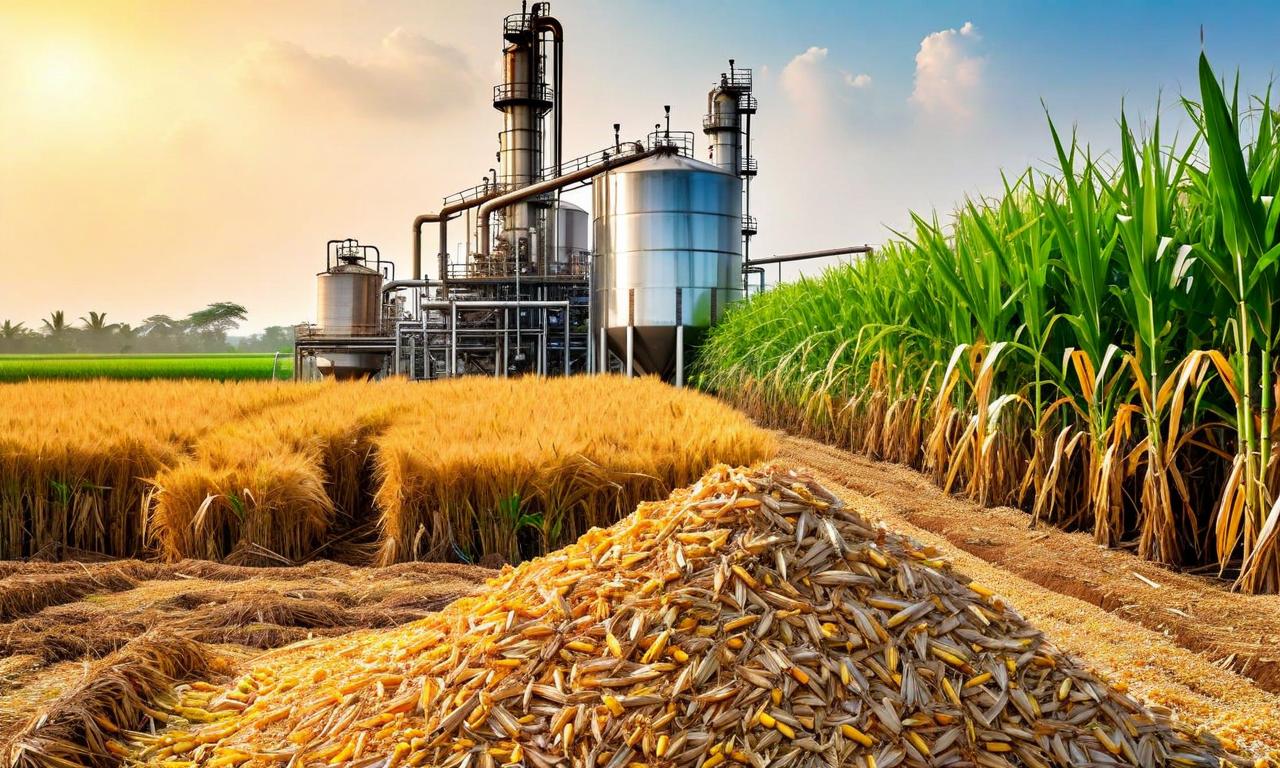India Greenlights Export of Second-Generation Ethanol with New Regulations
The Indian government has introduced new regulations permitting the export of second-generation ethanol, produced from various cellulosic materials like wood waste and agricultural residues. Companies can now export ethyl alcohol and denatured spirits of any strength for both fuel and non-fuel purposes, subject to valid export authorization and feedstock certification. This policy change coincides with an expected increase in sugarcane supply and the lifting of restrictions on ethanol production from sugarcane juice and syrup. The move is likely to diversify revenue streams for ethanol producers, promote advanced biofuels, improve agricultural waste utilization, and help balance domestic and export markets.

*this image is generated using AI for illustrative purposes only.
In a significant move for the ethanol industry, the Indian government has announced new regulations allowing the export of second-generation ethanol. This decision opens up international markets for ethanol produced from a variety of cellulosic materials, marking a shift in the country's ethanol export policy.
Key Points of the New Policy
- Export Authorization: Companies can now export second-generation ethanol, subject to valid export authorization.
- Feedstock Certification: Exports require certification of the feedstock used, applicable for both fuel and non-fuel purposes.
- Immediate Effect: The Directorate General of Foreign Trade has updated the export rules, which are effective immediately.
- Scope of Products: The policy applies to ethyl alcohol and denatured spirits of any strength.
Second-Generation Ethanol Sources
The government has specified that the exportable second-generation ethanol can be produced from various cellulosic materials, including:
- Wood waste
- Agricultural residues
- Rice and wheat straw
- Corn stover
- Sugarcane residue
Context of the Policy Change
This policy update comes at a time when the sugarcane supply in India is expected to increase. The government has recently permitted unrestricted ethanol production from sugarcane juice, syrup, and molasses for a future period. This decision reverses previous restrictions:
- The government had previously restricted sugar mills from using cane juice or syrup for ethanol production.
- The restriction was later lifted, allowing for increased ethanol production from these sources.
Implications for the Industry
The new export policy for second-generation ethanol is likely to have several impacts on the Indian ethanol industry:
- Diversification of Revenue Streams: Ethanol producers can now explore international markets, potentially leading to increased revenue and market expansion.
- Promotion of Advanced Biofuels: By allowing the export of ethanol made from cellulosic materials, the policy may encourage investment in second-generation ethanol production technologies.
- Agricultural Waste Utilization: The policy could lead to better utilization of agricultural residues and waste materials, contributing to waste management efforts.
- Balancing Domestic and Export Markets: With the ability to export, producers can balance between domestic and international demand, potentially stabilizing prices and supply.
As the policy takes effect, industry stakeholders will be closely watching its implementation and impact on both the domestic and international ethanol markets. The move aligns with India's broader goals of promoting biofuels and creating a more sustainable energy ecosystem.
























